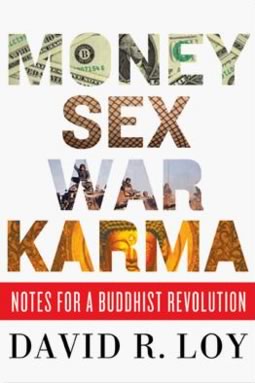I am sitting here thumbing through Robert Creeley’s Selected Poems, 1945-2005. There is much song and delight in these lines. And love. Creeley’s an old crooner. Because of my dharma poetry series, I am also, of course, searching–rather narrowly, I might add–for any specifically dharmic content in these poems. Creeley does speak often and well of emptiness. He speaks of the poet’s instinct as a kind of stance one might assume in the face of emptiness. In the poem, “The Dishonest Mailmen”, Creeley writes:
“The poem supreme, addressed to
emptiness–this is the courage
necessary.”
I like that. So, rather than ramble about any specific dharma in these lines, I just want to spend a moment talking about the poet’s instinct to write, to order his world from chaos into form, and I’d like to note how this instinct to observe and to listen closely to one’s own mind is really the same as the meditator’s instinct. In the end, the practice of meditation is about listening to and becoming friendly with one’s own mind. The idea being, once one achieves this essential friendliness, the rest–compassion, insight, kindness, etc.–follows.
As all meditators know, the first step toward mind-friendliness is facing the fact that our minds are a mess. Thoughts flit about like monkeys swinging from tree to tree. Monkey minds, that’s what’s in our heads. No matter how serene one is, no matter how in command of their mental processes, the mind is still a wild and wily thing. Here is Creeley’s poem “Chasing the Bird.”
“Chasing the Bird”
The sun sets unevenly and the people
go to bed.
The night has a thousand eyes.
The clouds are low, overhead.
Every night it is a little bit
more difficult, a little
harder. My mind
to me a mangle is.
…
Creeley writes a lot about thinking. Many of his poems have “think” or “thinking” in their titles. But Creeley’s not talking about thinking in the rational sense. He’s talking about something closer to actual meditation. He’s talking about mind-watching, or thinking-as-listening. In fact, he well knows the danger of too much so-called “thinking.”
Here’s a tricky poem touching on the nature of thinking and meditation.
“To think…”
To think oneself again
into a tiny hole of self
and pull the covers round
and close the mouth–
shut down the eyes and hands,
keep still the feet,
and think of nothing if one can
not think of it–
a space in whose embrace
such substance is,
a place of emptiness
the heart’s regret.
World’s mind is after all
an afterthought
of what was there before
and is there still.
…
I am still open to interpretations on these last two stanzas. Please send along your thoughts. Is this poem about getting to that space in meditation where one is thinking of nothing? Or where one is actually no longer thinking? How might one construe the lines “a place of emptiness / the heart’s regret”? Is Creeley’s “World’s mind” the same as Suzuki’s “Big Mind”? Do the last few lines make sense to you? Can you think of why, or do you just that feeling that you sometimes gets when something rings true (or not)?
So where does all this working with the mind lead Creeley? In a great poem from his collection “Away”, Creeley writes an emphatic stanza about how, in his view, the plan is the body.
“The plan is the body.
The plan is the body.
The plan is the body.
The plan is the body.”
I like these lines because they resonate so squarely with my sense of Tibetan bodywork practices. And because they offer me a reminder of what the plan is when mind is mangle.
For more, you can hear Creeley read a plethora of his poems here at a University of Pennsylvania website. A few of my favorites include “The Plan is the Body” and “Ballad of A Despairing Husband.”

